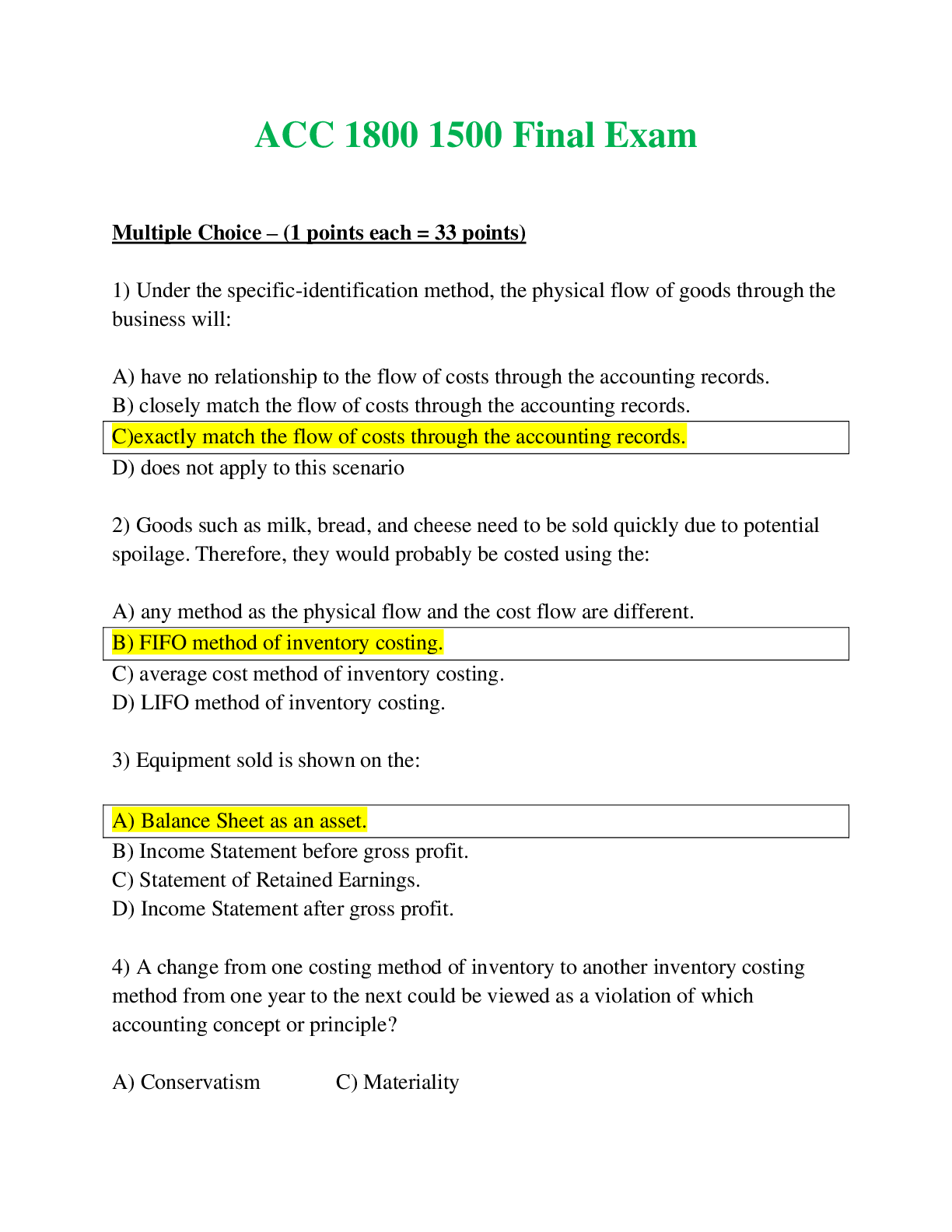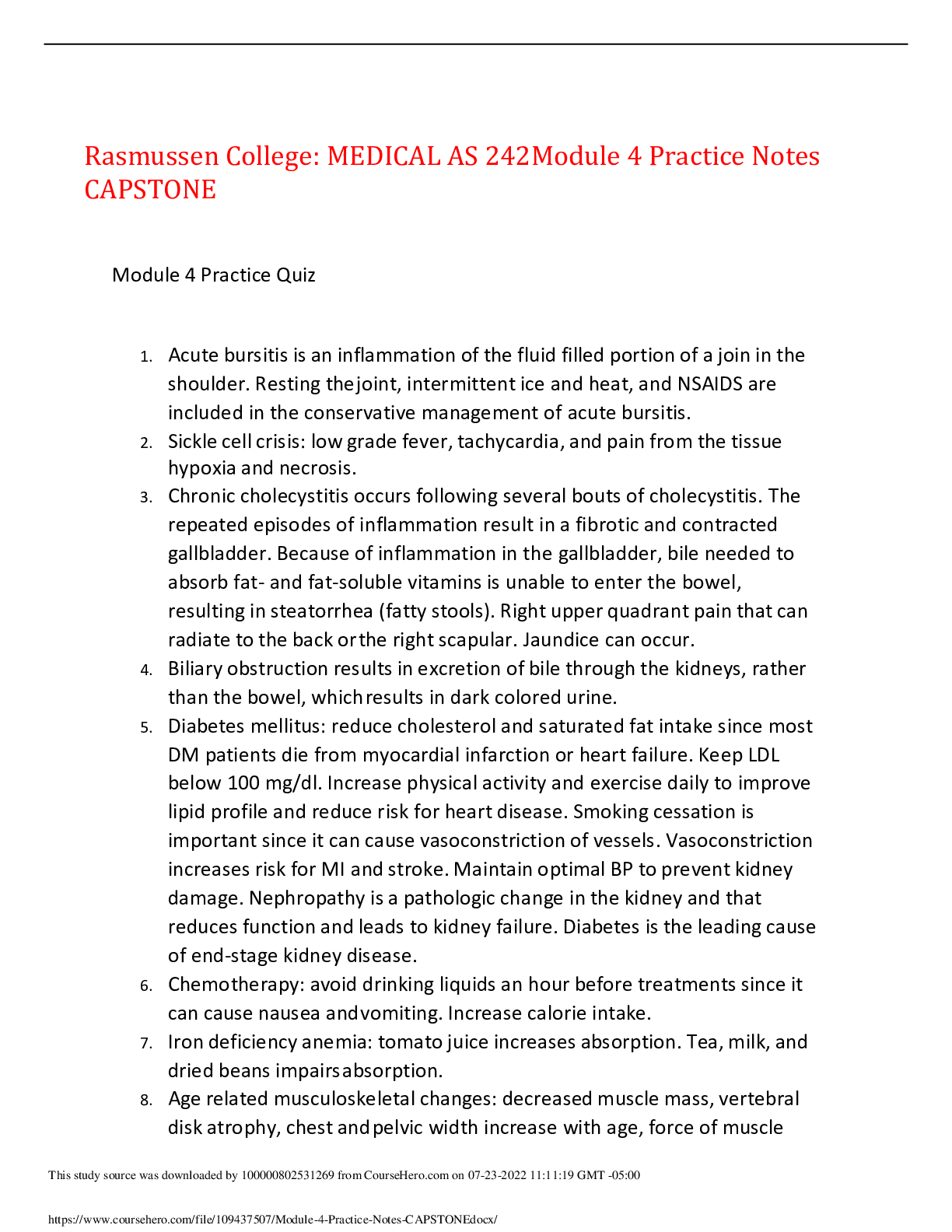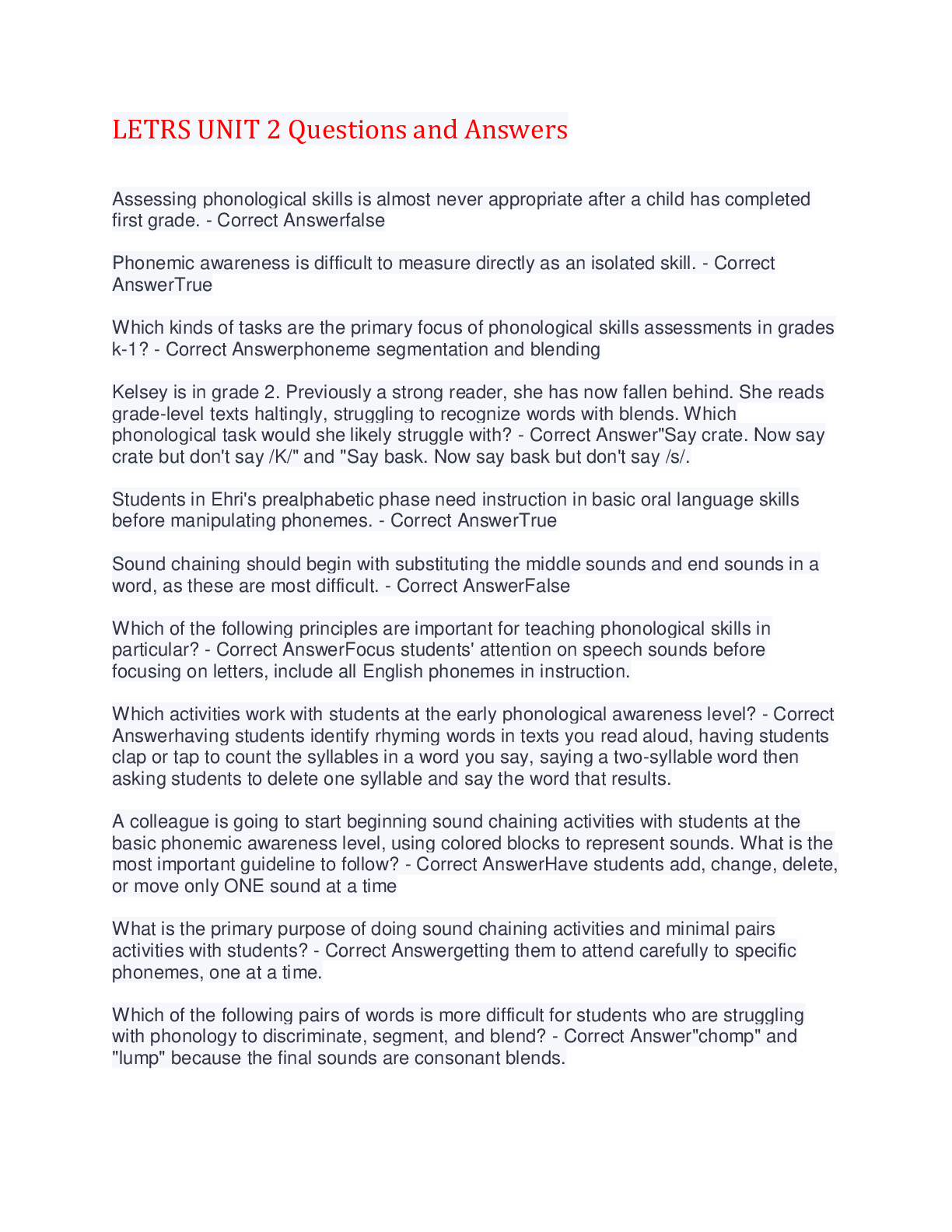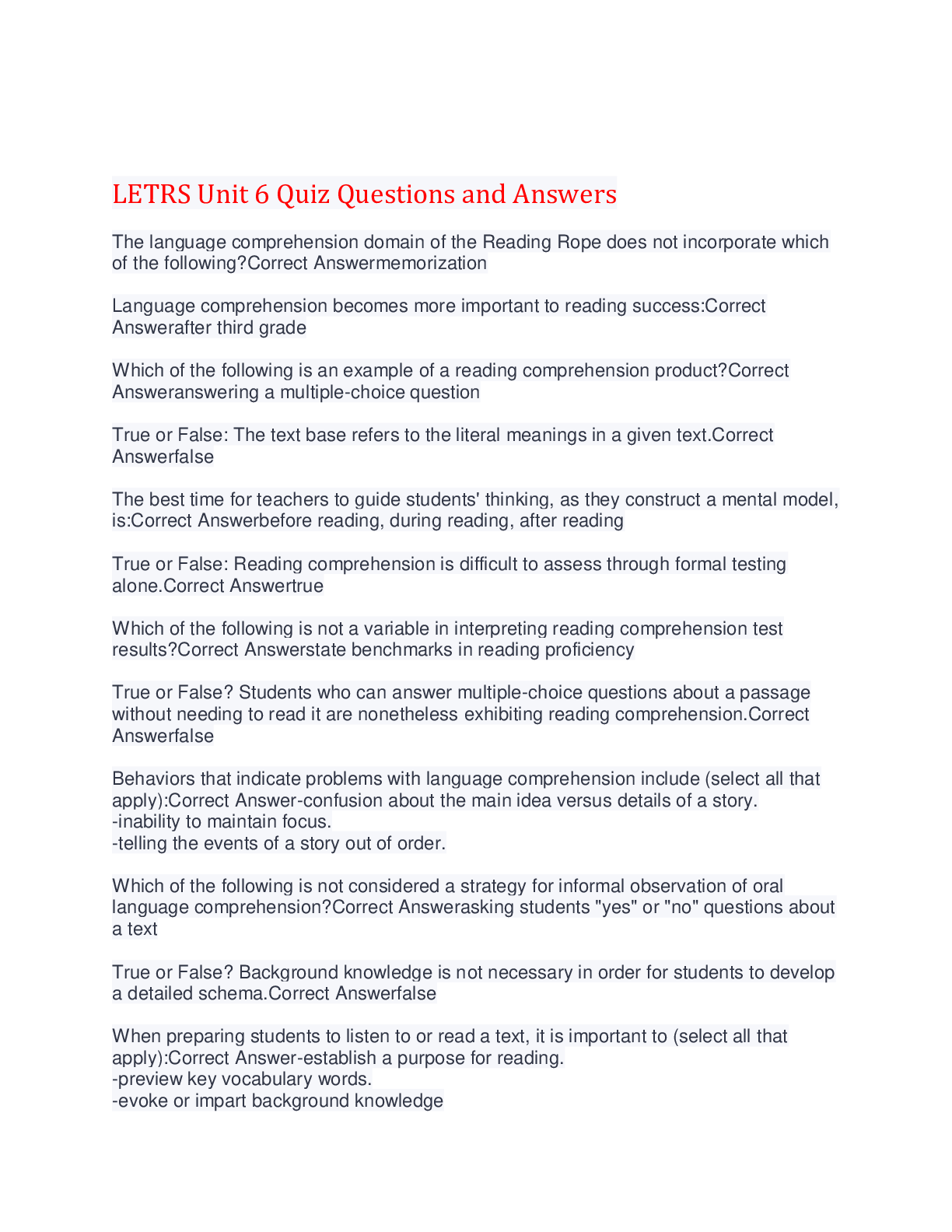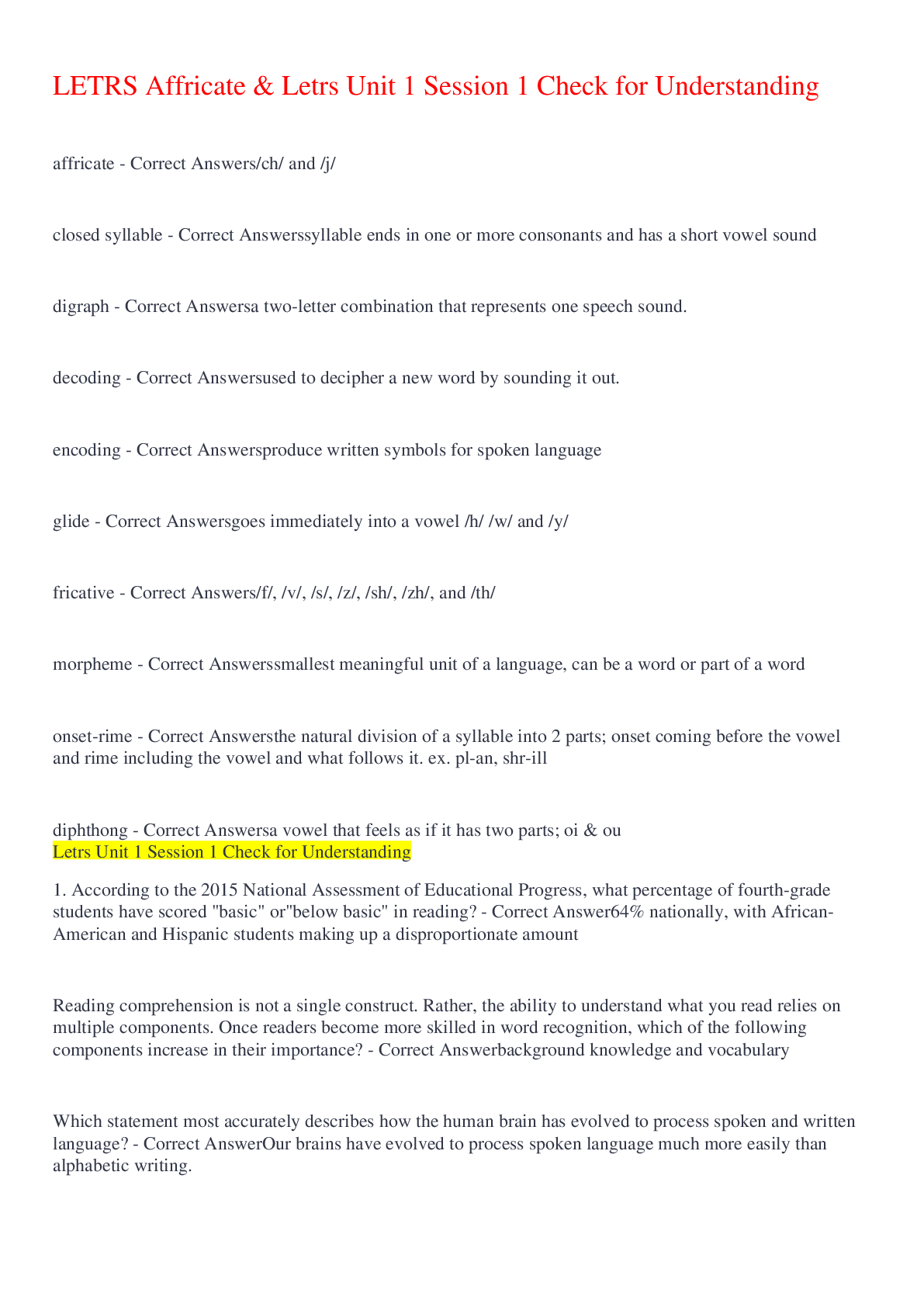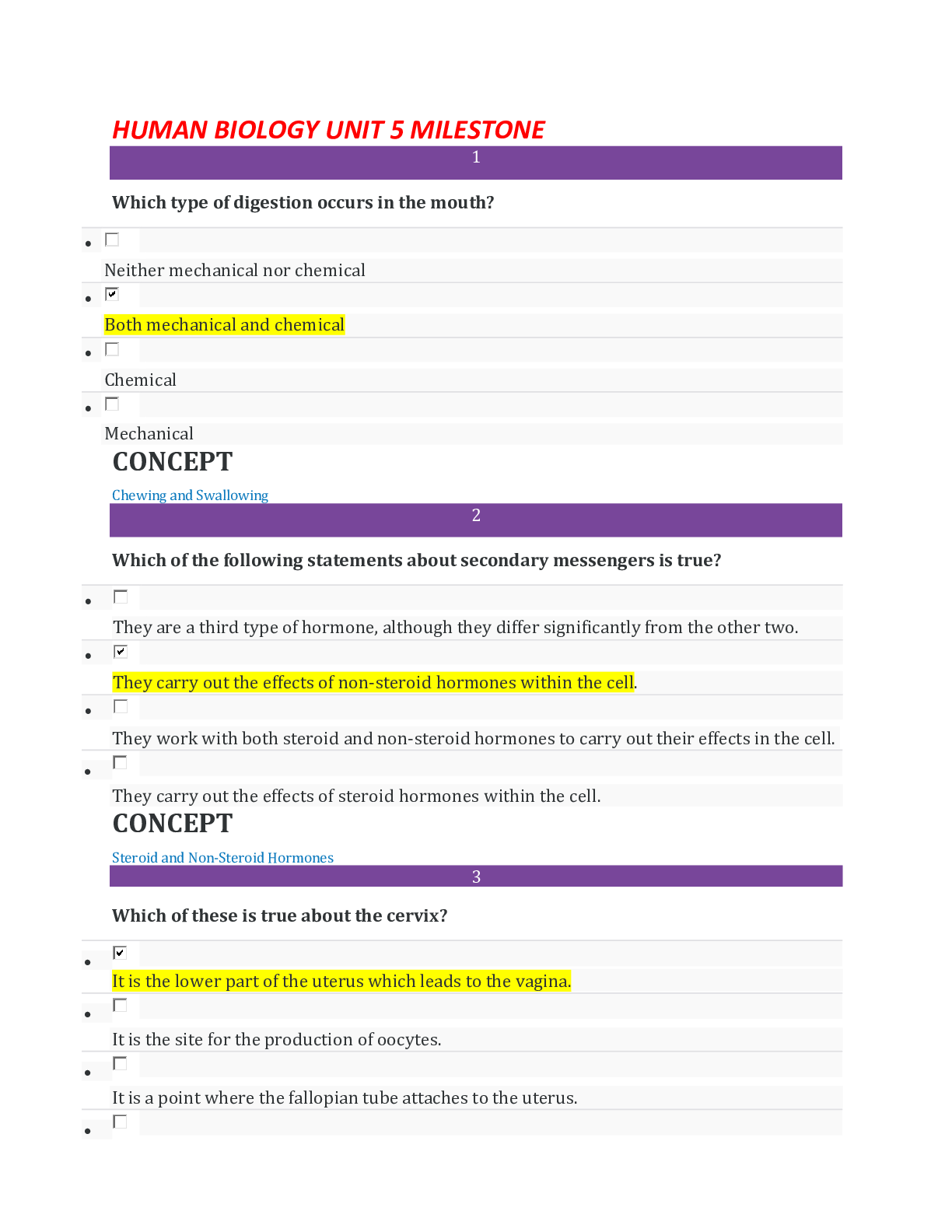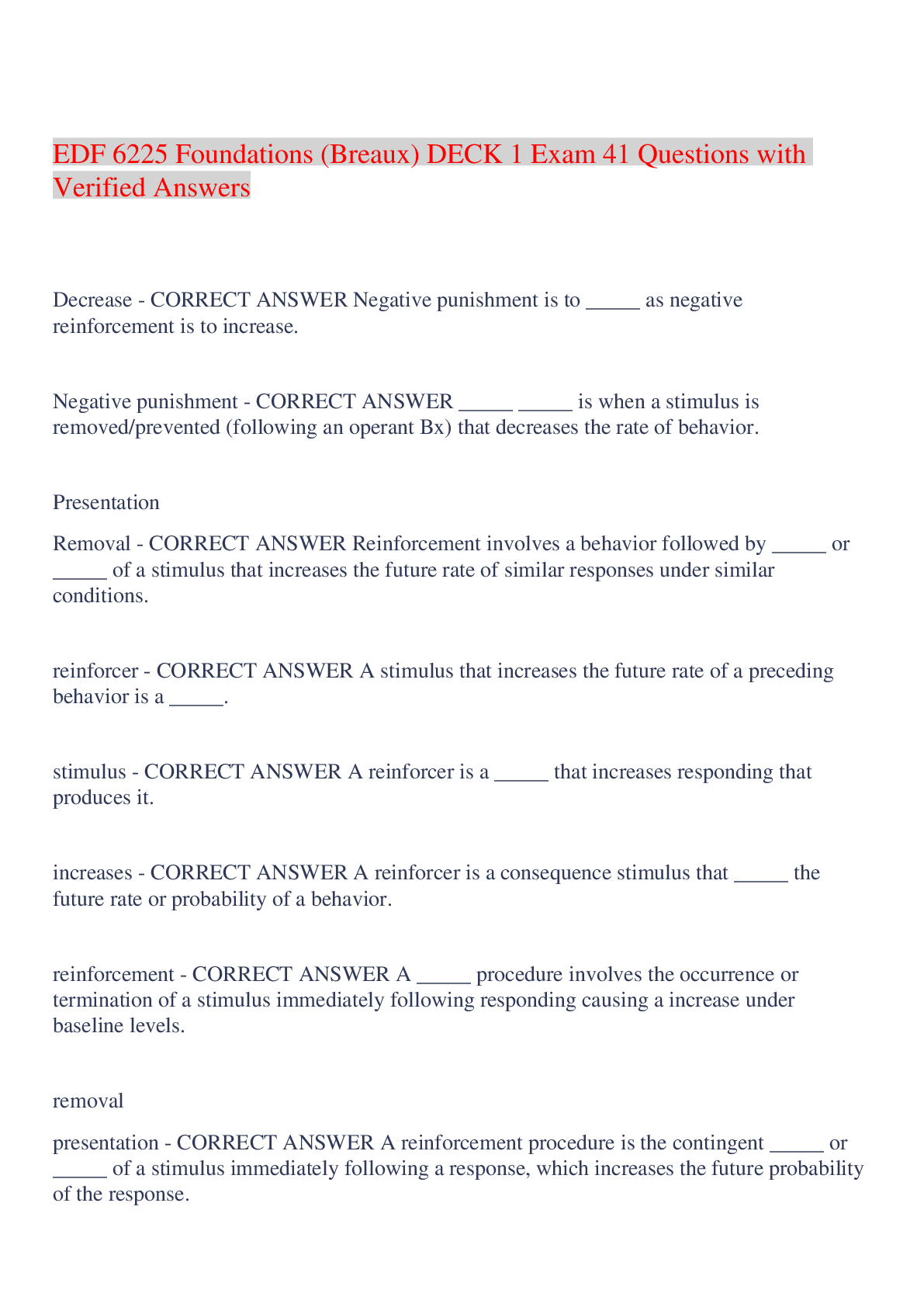Ancient Greek Quiz 3 Study Questions and answers,100% CORRECT
Document Content and Description Below
Ancient Greek Quiz 3 Study Questions and answers
• What are the archai, for the atomists? (Hint: there are 2) - Atoms and void
• What are the three ways in which being can differ, according
...
to the atomists? What are these differences supposed to explain?
- Things appear different to us than animals (one person doesn't make same judgements as another concerning senses). What is true and false is unclear (either nothing is true, or it is unclear to us). Senses (nothing that appears is the truth, only opinion)
• Democritus distinguishes between which two kinds of knowledge? Explain each kind.
- 554: Intellect- doesn't change; Senses-denies its inerrancy in discrimination of
truth
• Does Democritus think that the senses provide us with accurate information about reality? Why/why not? - No because our senses deceive us
• What does Democritus mean when he says, e.g., "by convention sweet" or "by convention hot"?
- Senses can deceive us so by what we know something is sweet or hot but may not be
• What is the Principle of Sufficient Reason? - Nothing happens or comes to be without a reason/cause
• What is hypothetical necessity? Give your own example and explain how this is an instance of hypothetical necessity.
- Has to be the case if something else is going to happen (If you want to graduate, then you have to go to class. You can't graduate without that)
• What is elenchus? - If you know 'x' then you can give an account of 'x'
• What is aporia? - Denotes a philosophy or philosophical puzzle
• What is Socratic intellectualism?
- People will do what is right or best just as soon as they truly understand what is
right or best. Virtue is a purely intellectual matter.
• In the Phaedo, what is Socrates' complaint about the Pre-Socratic?
- They never give a cause for coming to be
• According to Socrates in the Phaedo, what must the real cause of a thing do? - Explains why it comes to be, perishes, exists
• According to Socrates, what did he at one time think was the cause of "becoming two"? What does he now think is the cause of "becoming two"?
- He used to think the cause of become two was that when one and one were placed close together, they became two. But now he doesn't know the cause of anything.
• In the Parmenides, we are told that Zeno maintains that things cannot be both like and unlike. (a) What is Zeno's argument? (b) How does Socrates refute it?
- A: Zeno's argument is "If things are many, they must then be both like and unlike, but that's impossible because like can't be unlike." Then they can't be many. (127E)
• Give four characteristics of the forms (discussed in class, when we covered the Parmenides.)
- Causes, separate from/non-identical with sensible, one over many, grasped by reasoning
• The first problem Parmenides raises for Socrates' forms (in the Parmenides) is the problem of extent. Briefly describe the problem.
- There are form for large things like beauty and largeness but not for things like hair and dirt
• What are the day and sail images in the Parmenides supposed to depict?
- How the forms either encompass everything like in a day or if everything gets a
small part of the forms like being under a sail
• What problem does the Third Man argument cause for Socrates' forms? - One over many: if from the fact that all large things have one character in common, it follows that there is one form of largeness. Large things create another form of large things, etc.
• What is the "greatest difficulty" for the forms? Explain the difficulty.
- Masters and slaves are what they are because of their relation to each other- but forms are supposed to be causes of sensible, not other forms.
• In Book V of the Republic, Socrates tries to define the philosopher in contrast to another kind of person. This other kind of person is: - Guardians
- What is the Sun supposed to be analogous to, in the analogy Socrates sets up in Republic Book VI? - Form of the good
• Fill in the correct term for each of the epistemological levels of the divided line (Republic Book VI): - Understanding, Thought, Belief, Imagination
• Fill in the correct term for each of the ontological levels of the divided line (Republic Book VI):
- Forms
- Mathematical objects
- Sensible objects
- Images of sensible objects
[Show More]
Last updated: 3 years ago
Preview 1 out of 5 pages








